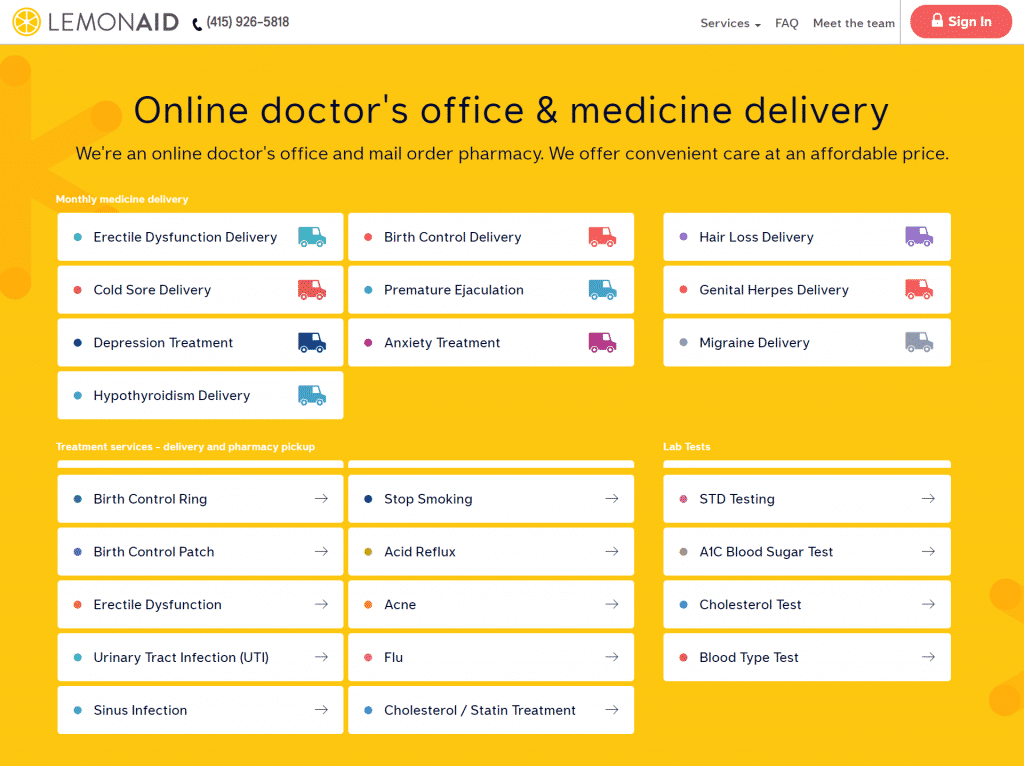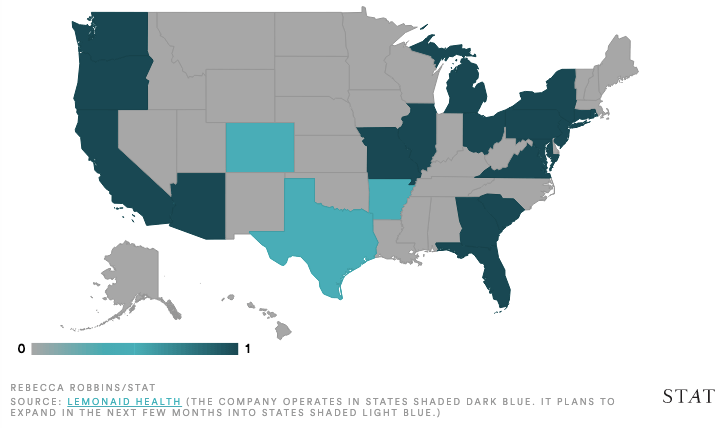When Life Gives You Digital Transformation, Make Lemonaid

Software is eating the world, and some healthcare appointments are on the menu. Would you rather get your birth control or erectile dysfunction drugs from a clinic visit, or by texting a doctor through an app?
#winner
Software is eating the world, and some healthcare appointments are on the menu. Digital tools and loosening regulations on how healthcare can be delivered remotely have created the opportunity for companies like Lemonaid to step in and win by providing direct-to-consumer prescriptions for common medical complaints.
Founding
Lemonaid was started in 2014 in San Francisco and allows anyone to download its app and have a brief text or video conversation with a doctor, before being written a prescription for medications for birth control, erectile dysfunction, or hair loss among many other complaints which can be delivered right to their doors. All for just a $25 “appointment-fee” + the cost of medications.
Value Proposition
It’s not a coincidence that many of these medical complaints are related to socially sensitive or stigmatized issues, which patients are hesitant to have face-to-face conversations about or be seen going to a doctor for. Because of the efficiencies of streamlined digital processes, doctors at Lemonaid can treat over 100 patients per day. Since patients pay $25 per “visit”, that works out to $2500/day/doctor which works out to $750K per doctor per year if a doctor works 300 days/year. In addition to medication prescription and delivery services, they now offer prescriptions for lab tests that can be gathered at a Quest Diagnostics facility near a patient. Lemonaid will also help patients to interpret medical test results, and counsel them on medications to treat whatever is found.
Challenges + Competition
Right now, the biggest barriers for Lemonaid include unclear regulatory requirements for what constitutes true digital doctor-patient interaction. In some states, having a patient send a picture of themselves is enough to say that the doctor has “seen” the patient, while other states require video calls, which can be done through the app as well. Lemonaid has also used legal interpretation as a weapon against their competition including Nurx, who they claimed was inappropriately leading patients to say specific things through filling out a multiple-choice intake form.
There is increasing competition from rivals seeking the same opportunity including Nurx, Hims, and Roman. These services have been referred to as “cloud pharmacies” due to their focus on remote drug prescriptions, while Lemonaid distinguishes itself as both an Online Doctor’s Office and Medicine Delivery Service. Hims (and now Hers) and Roman have a specific focus on the most popular reasons people come to these services, including sexual and menstrual health medications. Their branding allows them to expand into ancillary gender-specific grooming and wellness products, while Lemonaid instead stays away from grooming products (other than hair loss medications) and has expanded into being positioned more as a CVS Minute Clinic competitor.
Lemonaid has said that their expansion strategy is largely limited by the legal environment on a state by state basis, but also chooses states to expand to based on their population and distance from the west coast as that’s where their physicians are currently located.
https://www.statnews.com/2018/04/26/lemonaid-health-telemedicine/
Expansion
In addition to expanding into new pharmaceutical and lab test categories, Lemonaid should continue to consider how to keep their pricing model competitive. While $25/visit is consistent, as can be seen below, other services often waive the medical consultation fees while making up money on drug prices. Nurx works with insurance providers to cover “visit” fees.
Ultimately these “cloud pharmacies” should continue to experiment with how they can partner with traditional pharmaceutical companies, providers, and payors to discover how their brand of digital transformation can revolutionize the way patients receive convenient medical care.

https://finvsfin.com/roman-cold-sore-reviews/





Interesting read! While in some ways, it makes me uncomfortable, but it seems to be a winning idea for simple and common diseases. One advantage I do see is easier communication, especially for reproductive ailments that a lot of people are uncomfortable sharing in person. One thing I am wondering about is the danger of patients not being able to communicate their needs. The only sense that the doctor can use is visual inspection (might not be as clear on video call, but ignoring that). How do other elements of touch, breathing, temperature come into account? How is the company making sure that the digital process is not abused to get unnecessary prescriptions? An opportunity I see for this technology might be outside of the US where regulation is not as harsh. A lot of rural places in other countries are in desperate need of doctors who are unable to reach them. This could get them help, even if cursory and create a new market for the medical world all together
Thank you for the interesting post! As mentioned in the post, this service would be great solutions to many people who are uncomfortable sharing the problem in person or who has limited access to doctors. I am wondering if there is enough number of capable doctors who are willing to join this service given it only charges $25 per consultation and treating 100 patients per day seems tiresome. Also, although this is an online consultation, trust from customers in quality of doctors must be fundamental. If there are qualified doctors with an idle capacity, this service might work well, but if not the lack of supply side could be the bottleneck.